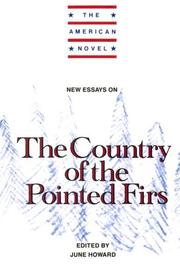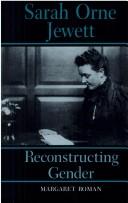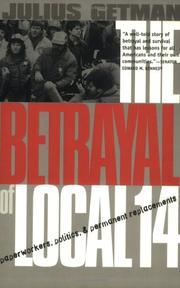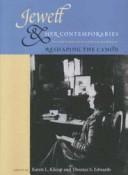| Listing 1 - 10 of 10 |
Sort by
|
Book
ISBN: 157441643X 9781574416435 9781574416343 1574416340 Year: 2016 Publisher: Denton, Texas
Abstract | Keywords | Export | Availability | Bookmark
 Loading...
Loading...Choose an application
- Reference Manager
- EndNote
- RefWorks (Direct export to RefWorks)
Maine --- District of Maine --- Maine (District) --- Maine (Province) --- Province of Maine --- Province of Maine of the Massachusetts Bay Colony --- State of Maine --- État du Maine --- Massachusetts
Book
ISBN: 1280487798 9786613583024 1934031712 9781934031711 9781934031728 1934031720 9781934031735 9781280487798 6613583022 Year: 2012 Publisher: Yarmouth, Me. : Islandport Press,
Abstract | Keywords | Export | Availability | Bookmark
 Loading...
Loading...Choose an application
- Reference Manager
- EndNote
- RefWorks (Direct export to RefWorks)
American wit and humor. --- American literature --- Maine --- District of Maine --- Maine (District) --- Maine (Province) --- Province of Maine --- Province of Maine of the Massachusetts Bay Colony --- State of Maine --- État du Maine --- Massachusetts
Book
ISBN: 0806370580 Year: 1973 Publisher: Baltimore, Md. : Genealogical Publishing,
Abstract | Keywords | Export | Availability | Bookmark
 Loading...
Loading...Choose an application
- Reference Manager
- EndNote
- RefWorks (Direct export to RefWorks)
Maine --- Census, 1790. --- District of Maine --- Maine (District) --- Maine (Province) --- Province of Maine --- Province of Maine of the Massachusetts Bay Colony --- State of Maine --- État du Maine --- Massachusetts --- United States. --- Population

ISBN: 0521415748 0521426022 0511620446 Year: 1994 Publisher: Cambridge Cambridge University Press
Abstract | Keywords | Export | Availability | Bookmark
 Loading...
Loading...Choose an application
- Reference Manager
- EndNote
- RefWorks (Direct export to RefWorks)
This is a collection of new essays on one of the most important works of New England local colour fiction, The Country of the Pointed Firs by Sarah Orne Jewett. It builds on feminist literary scholarship that affirms the importance and value of Jewett's work, but goes beyond previously published studies by offering an analysis of how race, nationalism, and the literary marketplace shape her narrative. The volume constitutes a major rethinking of Jewett's contribution to American literature, and will be of broad interest to the fields of American literary studies, feminist cultural criticism, and American studies.
Jewett, Sarah Orne --- Arts and Humanities --- Literature --- Women and literature --- History --- Jewett, Sarah Orne, --- Maine --- District of Maine --- Maine (District) --- Maine (Province) --- Province of Maine --- Province of Maine of the Massachusetts Bay Colony --- State of Maine --- État du Maine --- Massachusetts --- In literature.
Book
ISBN: 0674281217 0674282361 Year: 1924 Publisher: Harvard University Press
Abstract | Keywords | Export | Availability | Bookmark
 Loading...
Loading...Choose an application
- Reference Manager
- EndNote
- RefWorks (Direct export to RefWorks)
Ballads, English --- Folk songs, English --- Loggers --- Buckers (Persons) --- Fallers (Persons) --- Lumberjacks --- Timber buckers (Persons) --- Timber fallers (Persons) --- Lumbermen --- English ballads and songs --- English folk songs --- English ballads --- Maine --- District of Maine --- Maine (District) --- Maine (Province) --- Province of Maine --- Province of Maine of the Massachusetts Bay Colony --- State of Maine --- État du Maine --- Massachusetts

ISBN: 081739155X 0585228310 9780585228310 9780817391553 0817305335 9780817305338 Year: 1992 Publisher: Tuscaloosa University of Alabama Press
Abstract | Keywords | Export | Availability | Bookmark
 Loading...
Loading...Choose an application
- Reference Manager
- EndNote
- RefWorks (Direct export to RefWorks)
In her book Sarah Orne Jewett: Reconstructing Gender, Margaret Roman argues that one theme colors almost every short story and novel by the turn-of-the-century American author: each person, regardless of sex, must break free of the restrictive, polar-opposite norms of behavior traditionally assigned to men and women by a patriarchal society. That society, as seen from Jewett's perspective during the late Victorian era, was one in which a competitive, active man dominates a passive, emotional woman. Frequently referring to Jewett's own New England upbringing at the hands of an unusually progressive father, Roman demonstrates how the writer, through her personal quest for freedom and through the various characters she created, strove to eliminate the necessity for rigid and narrowly defined male-female roles and relationships. With the details of Jewett's free-spirited life, Roman's book represents a solid work of literary scholarship, which traces a gender-dissolving theme throughout Jewett's writing. Whereas previous critics have focused primarily on her best-known works, including "A White Heron," Deephaven, A Country Doctor, and The Country of the Pointed Firs, Roman encompasses within her own discussion virtually all of the stories found in the nineteen volumes Jewett published during her lifetime. And although much recent criticism has centered around Jewett's strong female characters, Roman is the first to explore in depth Jewett's male characters and married couples. The book progresses through distinct phases that roughly correspond to Jewett's psychological development as a writer. In general, the characters in her early works exhibit one of two modes of behavior. Youngsters, free as Jewett was to explore the natural world of woods and field, glimpse the possibility of escape from the confining standards that society has set, though some experience turbulent and confusing adolescences where those norms have become more pressing, more demanding. At the opposite extreme among these early characters are those who have mindlessly accepted the roles in which they have been trapped since youth--greedy, selfish men, dutiful women who tend emotionally empty houses, young couples unable to communicate either between themselves or with others--in short, characters who are too alienated within their roles to function as whole human beings. On the other hand, Jewett approaches the men and women of her later works with a higher degree of optimism, in that each person is free to live according to the dictates of his or her inherent personality--each character is able to measure life from within rather than from without. This group includes the self-confident men who are not reluctant to present a nurturing side and the warm, giving women who are unafraid of displaying a decided inner strength. As Roman summarizes, "In her writings, Jewett attempts to shift society's focus from a grasping power over people to the personal development of each member of society." Ahead of her time in many ways, Sarah Orne Jewett confronted the Victorian polarized gender system, presaging the modern view that men and women should be encouraged to develop along whatever paths are most comfortable and most natural for them.
Women and literature --- Gender identity in literature. --- Sex role in literature. --- Women in literature. --- Woman (Christian theology) in literature --- Women in drama --- Women in poetry --- Literature --- History --- Jewett, Sarah Orne, --- Criticism and interpretation. --- Maine --- District of Maine --- Maine (District) --- Maine (Province) --- Province of Maine --- Province of Maine of the Massachusetts Bay Colony --- State of Maine --- État du Maine --- Massachusetts --- In literature.

ISBN: 0801434769 1501724320 0801486289 Year: 1998 Publisher: Ithaca, NY ILR Press
Abstract | Keywords | Export | Availability | Bookmark
 Loading...
Loading...Choose an application
- Reference Manager
- EndNote
- RefWorks (Direct export to RefWorks)
Julius Getman tells the story of that strike and its implications - a story of a community changing under pressure; of surprising leaders, strategists, and orators emerging; of lifelong friendships destroyed and new bonds forged. Although International Paper, the richest paper company and largest landowner in the United States, enjoyed record profits and gave large bonuses to executives in 1987, that same year the company demanded that employees take a substantial paycut, sacrifice hundreds of jobs, and forego their Christmas holiday. At the Androscoggin Mill in Jay, Maine, twelve hundred workers responded by going on strike from June 1987 to October 1988. Local union members mobilized an army of volunteers, but International Paper brought in permanent replacement workers and the strike was ultimately lost.
International Paper Company Strike, Jay, Me (1987-1988) --- Strikes and lockouts --- Paper industry --- Maine (Etat) --- Jay --- International Paper Company Strike, Jay, Me., 1987-1988. --- Strikes and lockouts - Paper industry - Maine - Jay. --- Combinations of labor --- Lockouts --- Work stoppages --- Direct action --- Labor disputes --- Strikebreakers --- Paper industry. --- United Paperworkers International Union. --- Maine --- District of Maine --- Maine (District) --- Maine (Province) --- Province of Maine --- Province of Maine of the Massachusetts Bay Colony --- State of Maine --- État du Maine --- Massachusetts

ISBN: 0813022797 9780813022796 9780813017037 0813017033 0813017033 Year: 1999 Publisher: Gainesville : University Press of Florida,
Abstract | Keywords | Export | Availability | Bookmark
 Loading...
Loading...Choose an application
- Reference Manager
- EndNote
- RefWorks (Direct export to RefWorks)
Women and literature --- American literature --- Canon (Literature) --- American Literature --- English --- Languages & Literatures --- English literature --- Agrarians (Group of writers) --- Classics, Literary --- Literary canon --- Literary classics --- Best books --- Criticism --- Literature --- History --- Women authors --- History and criticism. --- History and criticism --- Jewett, Sarah Orne, --- Criticism and interpretation. --- Contemporaries. --- Maine --- District of Maine --- Maine (District) --- Maine (Province) --- Province of Maine --- Province of Maine of the Massachusetts Bay Colony --- State of Maine --- État du Maine --- Massachusetts --- In literature. --- Women authors.
Book
ISBN: 1400889081 0691171661 Year: 2017 Publisher: Princeton, NJ : Princeton University Press,
Abstract | Keywords | Export | Availability | Bookmark
 Loading...
Loading...Choose an application
- Reference Manager
- EndNote
- RefWorks (Direct export to RefWorks)
Money is nothing more than what is commonly exchanged for goods or services, so why has understanding it become so complicated? In Money, renowned economist John Kenneth Galbraith cuts through the confusions surrounding the subject to present a compelling and accessible account of a topic that affects us all. He tells the fascinating story of money, the key factors that shaped its development, and the lessons that can be learned from its history. He describes the creation and evolution of monetary systems and explains how finance, credit, and banks work in the global economy. Galbraith also shows that, when it comes to money, nothing is truly new-least of all inflation and fraud.
Economic history. --- Money --- History. --- Alexander Hamilton. --- American Revolution. --- American colonies. --- Andrew Jackson. --- Austria. --- Bank of England. --- Bank of the United States. --- Bretton Woods agreements. --- Britain. --- Christopher Columbus. --- David Ricardo. --- Employment Act (1946). --- Europe. --- Federal Reserve Act (1913). --- Federal Reserve System. --- France. --- Franklin D. Roosevelt. --- French Revolution. --- Germany. --- Great Depression. --- Gross National Product (GNP). --- Irving Fisher. --- Italy. --- John Law. --- John Maynard Keynes. --- Massachusetts Bay Colony. --- National Bank Act (1863). --- National Monetary Commission. --- New Economics. --- New York Stock Exchange. --- Nicholas Biddle. --- Richard M. Nixon. --- Robert Morris. --- Salmon P. Chase. --- Say's Law. --- Second Bank of the United States. --- The General Theory of Employment Interest and Money. --- Treasury notes. --- United States. --- Winston Churchill. --- World War I. --- World War II. --- anti-inflation policies. --- assignats. --- bank deposits. --- bank failures. --- bank notes. --- bank paper. --- bank rate. --- bank reserves. --- banks. --- budget. --- canals. --- central banks. --- coins. --- commerce. --- consumer expenditures. --- copper. --- credit. --- currency stabilization. --- deflation. --- demand. --- dual monetary system. --- economic policy. --- economy. --- employment. --- euphoria. --- finance. --- fiscal policy. --- fraud. --- free banking. --- global economy. --- gold standard. --- gold. --- government paper. --- greenbacks. --- income. --- inflation. --- investment. --- loans. --- market power. --- monetary policy. --- monetary system. --- monetary systems. --- money supply. --- money. --- national banks. --- national income. --- national product. --- notes. --- open-market operations. --- panics. --- paper money. --- politics. --- precious metals. --- prices. --- railroads. --- recessions. --- securities. --- silver. --- speculation. --- stock market crash. --- stock market. --- stocks. --- taxation. --- underemployment. --- unemployment. --- wages. --- whole prices.
Book
ISBN: 0691181594 0691184372 0691210551 Year: 2018 Publisher: Princeton, NJ : Princeton University Press,
Abstract | Keywords | Export | Availability | Bookmark
 Loading...
Loading...Choose an application
- Reference Manager
- EndNote
- RefWorks (Direct export to RefWorks)
How an obscure Puritan sermon came to be seen as a founding document of American identity and exceptionalism "For we must consider that we shall be as a city upon a hill," John Winthrop warned his fellow Puritans at New England's founding in 1630. More than three centuries later, Ronald Reagan remade that passage into a timeless celebration of American promise. How were Winthrop's long-forgotten words reinvented as a central statement of American identity and exceptionalism? In As a City on a Hill, leading American intellectual historian Daniel Rodgers tells the surprising story of one of the most celebrated documents in the canon of the American idea. In doing so, he brings to life the ideas Winthrop's text carried in its own time and the sharply different yearnings that have been attributed to it since. As a City on a Hill shows how much more malleable, more saturated with vulnerability, and less distinctly American Winthrop's "Model of Christian Charity" was than the document that twentieth-century Americans invented. Across almost four centuries, Rodgers traces striking shifts in the meaning of Winthrop's words-from Winthrop's own anxious reckoning with the scrutiny of the world, through Abraham Lincoln's haunting reference to this "almost chosen people," to the "city on a hill" that African Americans hoped to construct in Liberia, to the era of Donald Trump. As a City on a Hill reveals the circuitous, unexpected ways Winthrop's words came to lodge in American consciousness. At the same time, the book offers a probing reflection on how nationalism encourages the invention of "timeless" texts to straighten out the crooked realities of the past.
Cities and towns --- City and town life. --- Sociology, Urban. --- History. --- Winthrop, John, --- Winthrop, John, --- Winthrop, John, --- Influence. --- 1600-1775 --- United States --- United States. --- History --- A Model of Christian Charity. --- Abolitionism. --- African Americans. --- Alexis de Tocqueville. --- American exceptionalism. --- American nationalism. --- American studies. --- Americans. --- Anne Hutchinson. --- Annexation. --- Arbella. --- Atlantic World. --- Barack Obama. --- Bourgeoisie. --- British America. --- Calvinism. --- Capitalism. --- Center for Advanced Study in the Behavioral Sciences. --- Chosen people. --- Chris Christie. --- Christianity. --- City on a Hill. --- City upon a Hill. --- Civilization. --- Colonization. --- Debt. --- Donald Trump. --- Economic Life. --- Emigration. --- England. --- Exceptionalism. --- Existentialism. --- Frederick Jackson Turner. --- Generosity. --- George W. Bush. --- God. --- Great power. --- Historian. --- Imperialism. --- Indigenous peoples. --- Injunction. --- John Calvin. --- John L. O'Sullivan. --- John Winthrop. --- Laborer. --- Liberia. --- Literature. --- Manifest destiny. --- Martin Luther King, Jr. --- Massachusetts Bay Colony. --- Massachusetts Historical Society. --- Nationalism. --- New England. --- New Israel. --- New Nation (United States). --- Old Testament. --- Patriotism. --- Perry Miller. --- Pessimism. --- Piety. --- Political culture. --- Politics. --- Polity. --- Poor relief. --- Princeton University Press. --- Protestantism. --- Puritans. --- Quakers. --- Radicalism (historical). --- Republican National Convention. --- Rhetoric. --- Righteousness. --- Ronald Reagan. --- Samuel Eliot Morison. --- Scrutiny. --- Seminar. --- Sermon. --- Shareholder. --- Slavery in the United States. --- Slavery. --- Society of Jesus. --- Soviet Union. --- Speechwriter. --- Stanford University. --- Suggestion. --- Tax. --- Theocracy. --- Theology. --- Thomas Paine. --- United States. --- Usury. --- Vernon Louis Parrington. --- Wealth. --- White-Jacket. --- William Lloyd Garrison. --- Woodrow Wilson. --- Works of mercy. --- World War I. --- World War II. --- Writing.
| Listing 1 - 10 of 10 |
Sort by
|

 Search
Search Feedback
Feedback About UniCat
About UniCat  Help
Help News
News